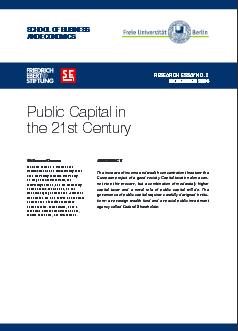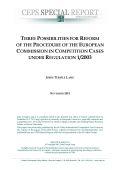Shilling, Α. G. (2014) “Why Countries Wage Currency Wars, BloombergView, 23 November. The U.S. dollar has been on a tear this year, rising against the currencies of virtually all major developed economies. What we’re seeing around the world is intense — and in some cases, deliberate — devaluations. What’s going on and what are the investment implications? One reason for the devaluations is that, when economic growth is weak …Read More
Why We Need Our Fiscal Policy Instrument Back
Wren-Lewis, S. (2014) “Why We Need Our Fiscal Policy Instrument Back, Social Europe Journal, 24 November. The latest Bank of England forecast has inflation returning to the 2% target by the end of 2017, which is in three years time. That is an unusually long time to be away from target. So what is the MPC proposing to do about this long lapse from target? Absolutely nothing. Tony Yates goes through all the detail, but …Read More
Benchmarking the European Central Bank’s asset quality review and stress test: A tale of two leverage ratios
Acharya, V. & Steffen, S. (2014) “Benchmarking the European Central Bank’s asset quality review and stress test: A tale of two leverage ratios“, VoxEU Organisation, 21 November. The ECB estimated that Eurozone banks would face a capital shortfall of €25 billion in a severe crisis. Earlier work by the authors estimated the shortfall to be 30 times higher. This column argues that this striking divergence can be explained by …Read More
The Commission after the 2014 EP Elections
Wille, Α. (2014) “The Commission after the 2014 EP Elections“, Ideas on Europe – UACES Blog, 19 November. ‘This Time It’s Different’! This was the campaigning slogan for the official run-up ahead of the 2014 European Parliament (EP) elections. Voters were led to believe that these elections would be different. Not only would they be choosing the EP, but indirectly they also would select the next president of the …Read More
Why the views of middle class citizens help explain increased choice in European healthcare systems
Costa-i-Font, J. & Zigante, V. (2014) “Why the views of middle class citizens help explain increased choice in European healthcare systems“, LSE EUROPP, 21 November. Several countries across Europe have attempted to reform their health systems by allowing patients more choice over their healthcare provider. The typical rationale for this strategy is that by creating competition between providers, there will be an increased incentive to improve the efficiency and …Read More
Public Capital in the 21st Century
Corneo, G. (2014) “Public Capital in the 21st Century“, Friedrich Ebert Stiftung, Freie Uni Berlin & Social Europe Journal, Research Essay No.2, November. The increase of income and wealth concentration threatens the European project of a good society. Capital taxation alone cannot stop this process, but a combination of moderately higher capital taxes and a novel role of public capital will do. The governance of public capital requires carefully …Read More
Europe’s goal should not be a United States of Europe, but a better united Europe of states
Glendinning, S. (2014) “Europe’s goal should not be a United States of Europe, but a better united Europe of states“, LSE EUROPP, 20 November. Is a European ‘superstate’ desirable and, if so, could it ever be created? Simon Glendinning writes on philosophical approaches to this question, drawing on the work of philosophers such as Hegel, Kant, Marx and Derrida. Taking inspiration from Kant, he argues that rather than aiming …Read More
Does EU regulation hinder or stimulate innovation?
Pelkmans, J. & Renda, A. (2014) “Does EU regulation hinder or stimulate innovation?“, Regulatory Policy, CEPS Special Reports, 19 November. One frequently hears the question posed in the title to this report, but there is little systematic analytical literature on the issue. Fragmented evidence or anecdotes dominate debates among EU regulatory decision-makers and in European business, insofar as there is a genuine debate at all. This CEPS Special Report …Read More
Erosion Or Exhaustion Of Democracy? The Challenge For Social Europe
Blühdorn, I. (2014) “Erosion Or Exhaustion Of Democracy? The Challenge For Social Europe“, Social Europe Journal, 18 Νοεμβρίου. Social Europe is caught between a rock and a hard place. It is supposed to restore confidence in democracy – which since the bailout of the failing banks and the ensuing politics of austerity can hardly be regarded as a plausible promise anymore and which, anyway, at EU-level is known primarily …Read More
Rethinking the Attractiveness of EU Labour Immigration Policies: Comparative perspectives on the EU, the US, Canada and beyond
Carrera, S., Guild, E. & Eisele, K. (2014) “Rethinking the Attractiveness of EU Labour Immigration Policies: Comparative perspectives on the EU, the US, Canada and beyond“, Justice and Home Affairs, CEPS Paperbacks, 13 November. Is Europe’s immigration policy attractive? One of the priorities driving current EU debates on labour immigration policies is the perceived need to boost Europe’s attractiveness vis-á-vis ‘talented’ and ‘highly skilled’ immigrants. The EU sees itself …Read More







